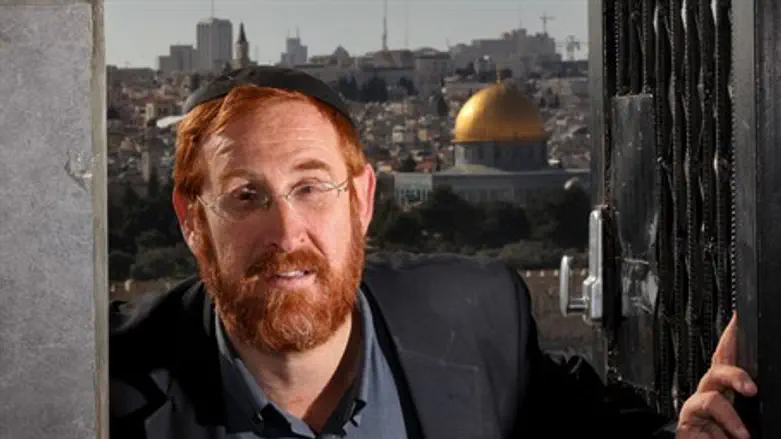
Jerusalem District Court Judge Carmi Mosek accepted a prosecutorial appeal against allowing Temple Mount rights activist Yehuda Glick to ascend to the Temple Mount once a month.
The Jerusalem Magistrate's Court in May lifted a restraining order against Glick ascending to Judaism's holiest site, with Judge Miriam Kalasi granting him permission to visit once a month, as long as he did not carry a smartphone or camera.
The restraining order was put into effect in September, after a Muslim woman accused Glick of pushing her on the Mount, resulting in a broken arm. Glick denies the allegation.
After listening to arguments Mosek sided with the prosecution, who appealed Kalasi's lifting of the ban, over Glick, who wished all suspensions against him to be removed.
"The duty of the court is to examine the surface of things, among others, against the background of the explosive situation on the Temple Mount - a situation that is known to all," the Judge wrote in his ruling.
"The courts, with their differing decisions, both returned and described the situation on the Temple Mount. Thus, that resonates when we examine the parole conditions of someone who allegedly committed a violent crime on the Temple Mount."
The judge ruled that the Magistrate's Court had erred when it determined there was enough of a change in circumstances to warrant a cancellation of the restraining order pending Glick's trial.
"I believe there was no substantial change in circumstances to lead to the conclusions reached by the Magistrate's Court, whereby the respondent [Glick] was granted permission to enter the Temple Mount compound at least once a month."
"The danger of similar events has not passed, and therefore there is no justification to cancel or change the set conditions, according to which the respondent is barred from the Temple Mount until the end of proceedings against him," Mosek concluded.